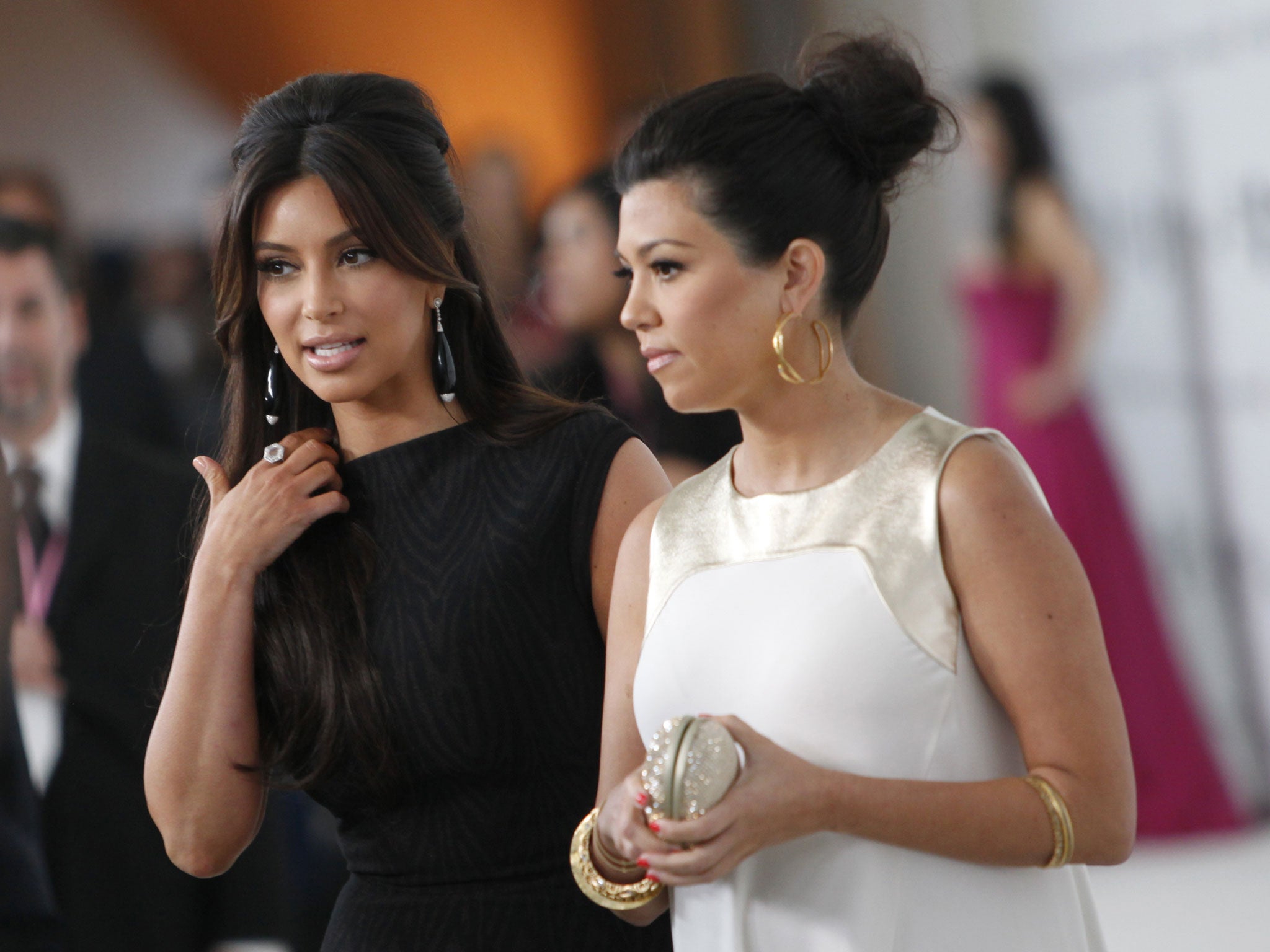Kourtney offers to breastfeed her sister Kim Kardashian's baby - so what's the big deal?
For many mothers, the idea of letting another woman breast-feed their baby crosses a line, but the ancient practice of wet-nursing has many benefits for modern women

Your support helps us to tell the story
From reproductive rights to climate change to Big Tech, The Independent is on the ground when the story is developing. Whether it's investigating the financials of Elon Musk's pro-Trump PAC or producing our latest documentary, 'The A Word', which shines a light on the American women fighting for reproductive rights, we know how important it is to parse out the facts from the messaging.
At such a critical moment in US history, we need reporters on the ground. Your donation allows us to keep sending journalists to speak to both sides of the story.
The Independent is trusted by Americans across the entire political spectrum. And unlike many other quality news outlets, we choose not to lock Americans out of our reporting and analysis with paywalls. We believe quality journalism should be available to everyone, paid for by those who can afford it.
Your support makes all the difference.It’s well known the key to successful breastfeeding is support; friends, family, healthcare professionals and partners all play a part. But when does this support cross the line? Is it when another member of your family, or not in some cases, decides to physically help with the breastfeeding? Kourtney Kardashian has this week revealed her unique plans for her sister, Kim Kardashian's baby, offering to wet nurse whilst on babysitting duty.
Kim turned down the offer on the basis of it being "disgusting", yet in many countries across the world its common practice and a practice which has gone on throughout history. It might not be a new act, yet I don’t feel it’s one which will ever be truly accepted in modern Britain. When it's already a struggle to inspire the next generation to breastfeed, reintroducing the concept of wet-nursing might be considered a step too far.
Even though I don't find the concept of wet-nursing inherently disgusting, I can certainly understand where Kim is coming from and I appreciate why many mothers would be put off the idea. I was lucky enough to breastfeed both my boys and know it can create a truly intimate bond. Would I want my baby to form that bond with another women and not me? Honestly, no I wouldn’t. In fact, I even used to get a jealous if someone else would try and give my child a bottle. I would think that it should be me feeding my baby. So I can’t see the idea of someone else doing the physical act of breastfeeding sitting comfortably. If however, I had been unable to breastfeed, would I then have considered a wet nurse? Probably not, in fact, how do you actually find one?
Kim and I are not alone; TV presenter Kate Garraway admitted that she used to thinking feeding another woman’s baby sounded, ‘a bit icky’. After meeting mothers from the UK and the US Kate was prompted to rethink her position on the situation. She said: “It bonkers to feel that letting your baby ingest another woman’s milk is beyond the pale, while being happy to let that same baby ingest cow’s milk. Which is what formula milk is.”
It would be fair to say that wet nursing in the western world, even if it was widespread just a few hundred years ago, still has a class stigma attached to it, rooted in the history of working-class women paid to feed the children of aristocracy. Larissa, mum of two had a strong reaction: "Imagine your mum telling you that someone else fed you as a baby! Wrong! All wrong!" Laura Cornwall, mum to four-week-old Lewis told me, “I don’t understand rich people who do use a wet nurse, why wouldn’t they want the milk given a bottle? It’s a special bond meant for mother and baby.”
Laura also added: “However having said that, if I were too ill and my baby wouldn’t take a bottle I might consider it if tube feeding was distressing and I didn’t like it.” The issue of either mother or baby being ill, raises an entire new side to this debate. Premature babies, some as small as 2lb are given breast milk provided by milk banks and this milk can be life-saving.
This modern day form of wet nursing, if you can call it that, seems much more socially acceptable. Who wouldn’t want their baby to have the best milk, especially with premature babies where breast milk can be life-saving? To me this highlights that it is not the other women’s milk which is an issue but the way that substance is provided. Actual mouth to nipple breastfeeding just feels like a very intimate act and the discomfort mothers feel at the thought of sharing is perfectly natural.
Join our commenting forum
Join thought-provoking conversations, follow other Independent readers and see their replies
Comments